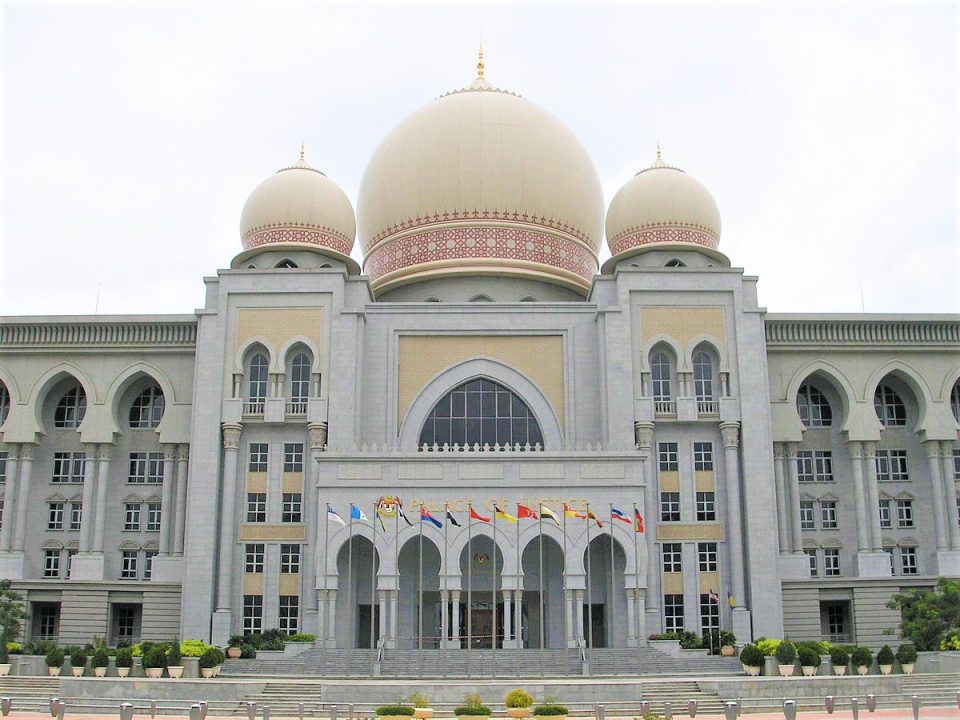PUTRAJAYA, Nov 19 — The Federal Court today granted Malaysian citizenship to a 17-year-old teenager who was born in a hospital in Kuala Lumpur to an unknown mother and later adopted by a Malaysian couple.
Chief Justice Tun Tengku Maimun Tuan Mat, who chaired a five-member bench, said the child is entitled to Malaysian citizenship by virtue of his birth within the Federation of Malaysia under Article 14(1)(b), section 1(a) of Part II of the Second Schedule of the Federal Constitution read together with Section 19B of Part III of the Second Schedule of the Federal Constitution.
She said since the child was found abandoned in Hospital Universiti Kebangsaan Malaysia (HUKM) in Kuala Lumpur, it is presumed that he was born to a mother who is a permanent resident there and as such the child was born within the Federation of Malaysia and his mother is presumed to be a permanent resident in the Federation.
She granted a declaration that the teenager is a Malaysian citizen and ordered that the Registrar-General of Births and Deaths’s decision in issuing the child’s birth certificate by registering him as a non-citizen in 2017 to be quashed, and directed a re-issuance of a new birth certificate to register the child as a citizen.
Justice Tengku Maimun, who delivered the court’s unanimous decision, allowed the appeal brought by the boy and his adoptive parents, reversing the decisions of the Penang High Court and Court of Appeal which did not rule in favour of the child.
The other four judges who presided with Justice Tengku Maimun were Federal Court judges Datuk Nallini Pathmanathan, Datuk Mary Lim Thiam Suan, Datuk Harmindar Singh Dhaliwal and Datuk Rhodzariah Bujang.
The child, identified only as CYM to protect his identity, was abandoned by his biological mother in HUKM in 2004 and the couple subsequently adopted him.
When the boy turned 12 years old in 2016, NRD declined to issue him an identity card, noting that there were “some inaccuracies” in the boy’s name and that of his adoptive parents’ children. His adoptive parents subsequently surrendered the boy’s birth certificate to the NRD in order for a new one to include correct facts of the parents.
However, the boy’s second birth certificate recorded the child’s parents information as not available and listed the child’s citizenship status as “yet to be determined”, prompting the child’s adoptive parents to re-apply for a new birth certificate.
Subsequently, in September 2017, the Registrar-General of Births and Deaths issued the birth certificate but stated that the boy was a non-citizen.
In delivering the court’s decision online, Justice Tengku Maimun said this case is now precedent on how the Ministry of Home Affairs, the NRD and the Registrar-General of Births and Deaths ought to deal with all such future cases within the context of abandoned newborns.
Justice Tengku Maimun said when confronted with an application for registration of such newborns, the burden is on the Registrar-General of Births and Deaths to undertake proper investigations to determine the status of the child’s biological parents or mother.
“If it was found that the abandonment is true, the respondent (Registrar-General of Births and Deaths) is obligated by the highest law of the land in section 19B of Part III of the Second Schedule of the Federal Constitution to recognise that new born child’s citizenship by operation of law, except where there is evidence to the contrary,” she said.
She said the respondents’ contention that the boy’s adoptive parents concealed facts which in turn connotes that they somehow knew the identity of the child’s biological parents is unsupported by evidence.
“Given that the child was born in the said hospital, surely the respondent (Registrar-General of Births and Deaths) has the means to verify from the hospital’s admission records, the identity of the child’s biological mother, if not the father,” she said adding that the respondent has not been able to discharge their legal burden with regard to the residence of the child’s mother.
Justice Tengku Maimun said the Ministry of Home Affairs of which the Registrar-General of Births and Deaths is an integral part, has all the important machinery of the State at their disposal to conduct appropriate investigations to ascertain the truth.
“In the circumstances, rather than denying the child citizenship because they were not able to gather any evidence of the child’s birth and biological parents, the respondent ought to have given effect to section 1 (a) of Part II read together with section 19B of Part III (of the Second Scheduled of the Federal Constitution).
“They had no right or discretion to do anything else certainly much less render the child stateless,” she said adding that the word citizenship by operation of law could not be any clearer, and there is no room whatsoever for discretion.
She said that citizenship by operation of law is a right — a fundamental and constitutional right, adding that it leaves absolutely no room for the exercise of subjective notions or presuppositions on what citizenship is.
A team of lawyers led by Datuk Dr Cyrus Das appeared for the boy and his parents while senior federal counsels Shamsul Bolhassan, Mazlifah Ayob and Liew Horng Bing appeared for the Registrar-General of Births and Deaths.
— Bernama





